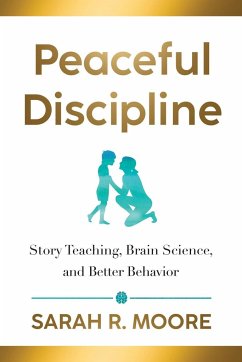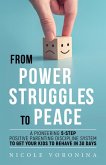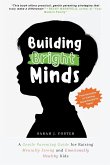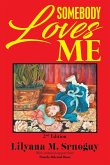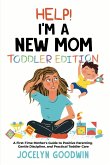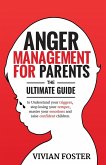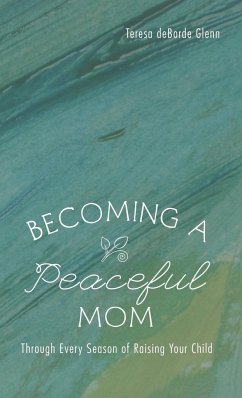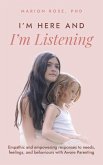In Peaceful Discipline: Story Teaching, Brain Science, & Better Behavior, we explore: The body-brain connection to behavior, why most "consequences" don't work, and what to do instead -- all within the framework of positive discipline How parents and children can regulate their nervous systems to foster greater connection, even in the thick of adversity How to use different types of storytelling and playful parenting as effective and benevolent teachers It covers these topics from the contexts of neuroscience, attachment theory, and best practices of conscious parenting. This book helps mitigate adults' very real struggles, and gives them specific strategies that increase cooperation and connection, whether they're parenting preschoolers or older school-age children. Excerpt: ¿¿ A parent walks into their child's bedroom and finds the child, for no clear reason, pulling all the clothing out of the drawers and throwing the items haphazardly across the floor. Without missing a beat, the parent yells, "What are you doing? Stop it! Put these clothes away right this second! Sheesh-I just folded them! What are you trying to do to me?" The parent then storms out, warning the child they have five minutes to make the room spotless or there will be negative consequences. The frustration is certainly justified. Who wants to put away laundry once, let alone twice? At the same time, the child likely feels small after having been yelled at by their trusted big person. The child may or may not know why they were throwing the laundry. (Boredom? Curiosity? Temporary loss of marbles, literally or figuratively?) The child may also feel afraid- perhaps of the punishment itself, or perhaps of their perceived loss of connection with their parent. Either way, the child feels distant, helpless, and small-and likely sad or resentful. Soon thereafter, the parent may have collected him- or herself and now feels like a jerk, having yelled for what feels like the hundredth time that week. They hate the way their outbursts seem to drive a wedge between them and their child, even when their feelings are justified. The guilt feels heavy and oppressive. They want a better path forward, but where to start? Is change even possible, much less change to which the child will actually respond? Although the details might differ, we've all been there. Just when everything is moving along peacefully, our child throws us for a loop. They do something we wish they hadn't. We flip out, and it feels like a lost cause. All we wanted was to sit back for a second and take a breath, and now this happens (whatever this is). Why can't things just be easier? Can we actually like our child and feel sure that they like us back? I hear you, and I get it. And I'm here with hope and encouragement for you-along with some very practical tools within the framework of conscious parenting that will help you catch your breath (and exhale it fully, deeply, and calmly).
Hinweis: Dieser Artikel kann nur an eine deutsche Lieferadresse ausgeliefert werden.
Hinweis: Dieser Artikel kann nur an eine deutsche Lieferadresse ausgeliefert werden.

